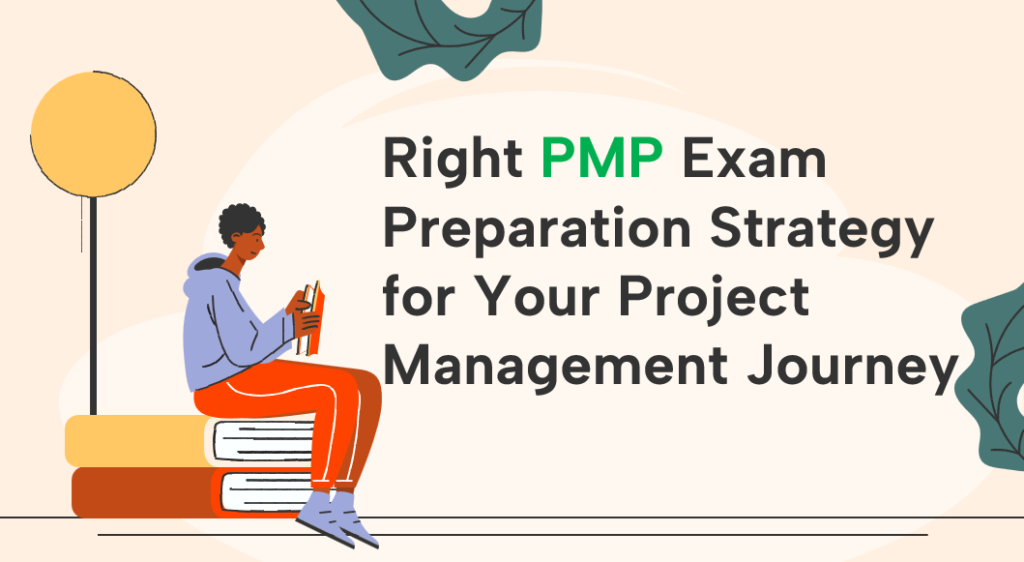Choosing the Right PMP Exam Preparation Strategy for Your Project Management Journey
Embarking on the journey to become a Project Management Professional (PMP) is a significant step towards advancing your career in project management. The PMP certification, offered by the Project Management Institute (PMI), is a globally recognized credential that validates your expertise in leading and managing projects. To succeed in the PMP exam, it’s crucial to have an effective preparation strategy tailored to your learning style and schedule.

Assess Your Knowledge and Experience
Before diving into your PMP exam preparation, it’s important to take stock of your existing knowledge and experience in project management. Evaluate your familiarity with the five domains of project management: People, Process, Business Environment, Agile and Hybrid, and Tailoring Considerations. This assessment will help you identify your strengths and areas that require more focus during your preparation.
Determine Your Learning Style
Understanding your learning style is pivotal in selecting the most effective preparation materials and methods. Are you a visual learner who benefits from diagrams and charts? Or do you thrive on hands-on experiences and practical applications? Perhaps you absorb information best through written materials and textbooks. Recognizing your learning style will enable you to choose study resources that resonate with you.
Explore Study Resources
The market is replete with a wide array of study resources designed to aid PMP exam preparation. Consider the following options:
1. Official PMI Materials: PMI offers a variety of resources, including the PMBOK (Project Management Body of Knowledge) Guide, which is a foundational text for the PMP exam. Additionally, PMI provides practice exams and study guides.
2. Online Courses and Webinars: Many platforms offer comprehensive PMP courses, complete with video lectures, quizzes, and practice exams. These courses are often led by experienced instructors and may include interactive elements.
3. Practice Exams and Simulations: These are invaluable for familiarizing yourself with the format and types of questions you’ll encounter in the actual PMP exam. They also help gauge your readiness and identify areas for improvement.
4. Study Groups and Forums: Engaging with a community of fellow PMP candidates can provide support, motivation, and opportunities for knowledge sharing. Forums and study groups allow you to discuss concepts, ask questions, and gain different perspectives.
5. Textbooks and Reference Materials: Supplement your study with reputable textbooks that cover the PMP exam content in depth. Look for publications by renowned authors or publishers with a track record in project management literature.
Create a Study Schedule
Establishing a structured study schedule is essential for maintaining consistency and progress. Determine how many hours per week you can dedicate to preparation and allocate specific time slots for studying. Be realistic about your commitments and plan accordingly. A well-organized schedule ensures you cover all relevant topics and leave sufficient time for review.
Practice Online PMP Exam Questions
Regular practice is key to reinforcing your understanding of project management concepts and sharpening your problem-solving skills. Take advantage of PMP exam questions to assess your knowledge and track your progress. Focus on areas where you may be struggling and seek additional resources or clarification as needed.
Monitor Your Progress and Adjust
Throughout your preparation, periodically evaluate your progress against your initial assessment. Identify areas of improvement and adjust your study plan accordingly. Don’t be afraid to revisit certain topics or explore alternative resources if you find a particular area challenging.
By following these steps and tailoring your preparation strategy to align with your learning style and goals, you’ll be well-equipped to tackle the PMP exam with confidence. Remember, success in the PMP exam is not just about rote memorization, but about understanding and applying project management principles in real-world scenarios.
